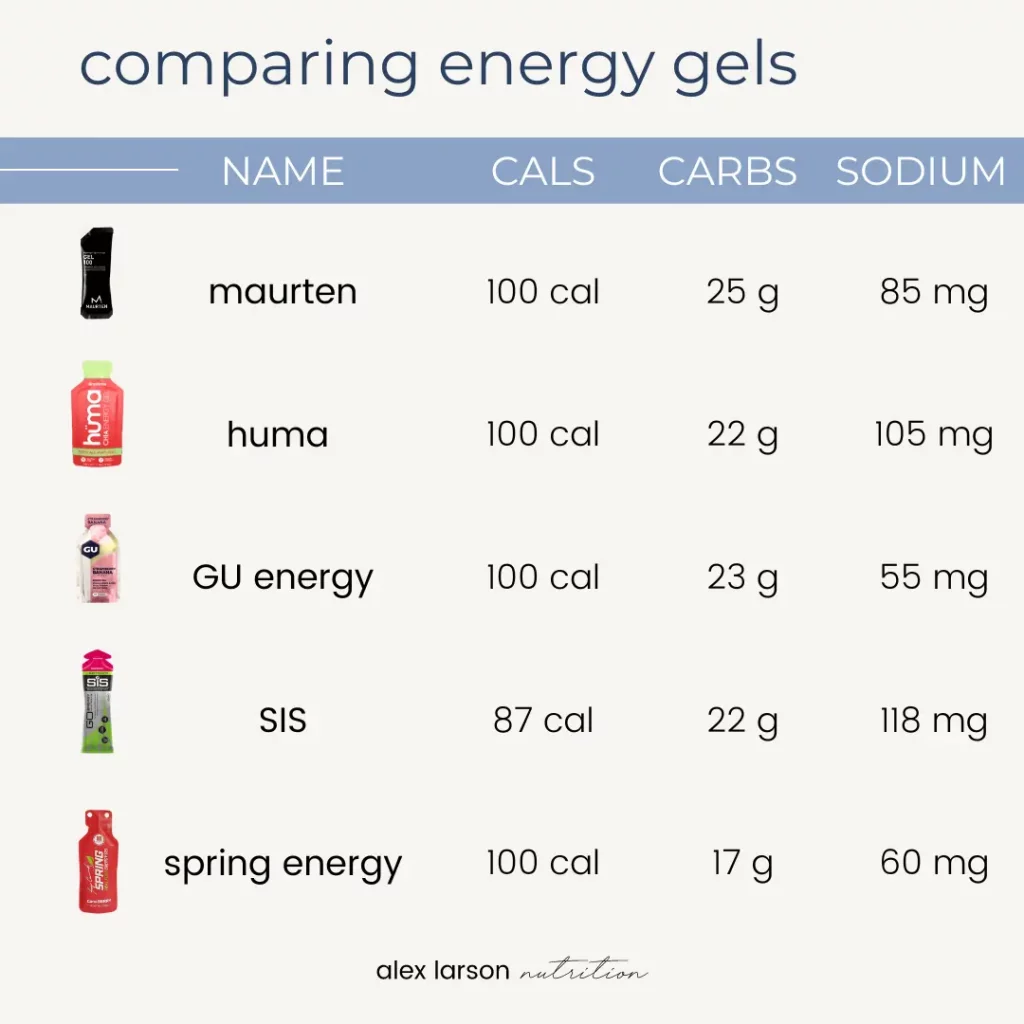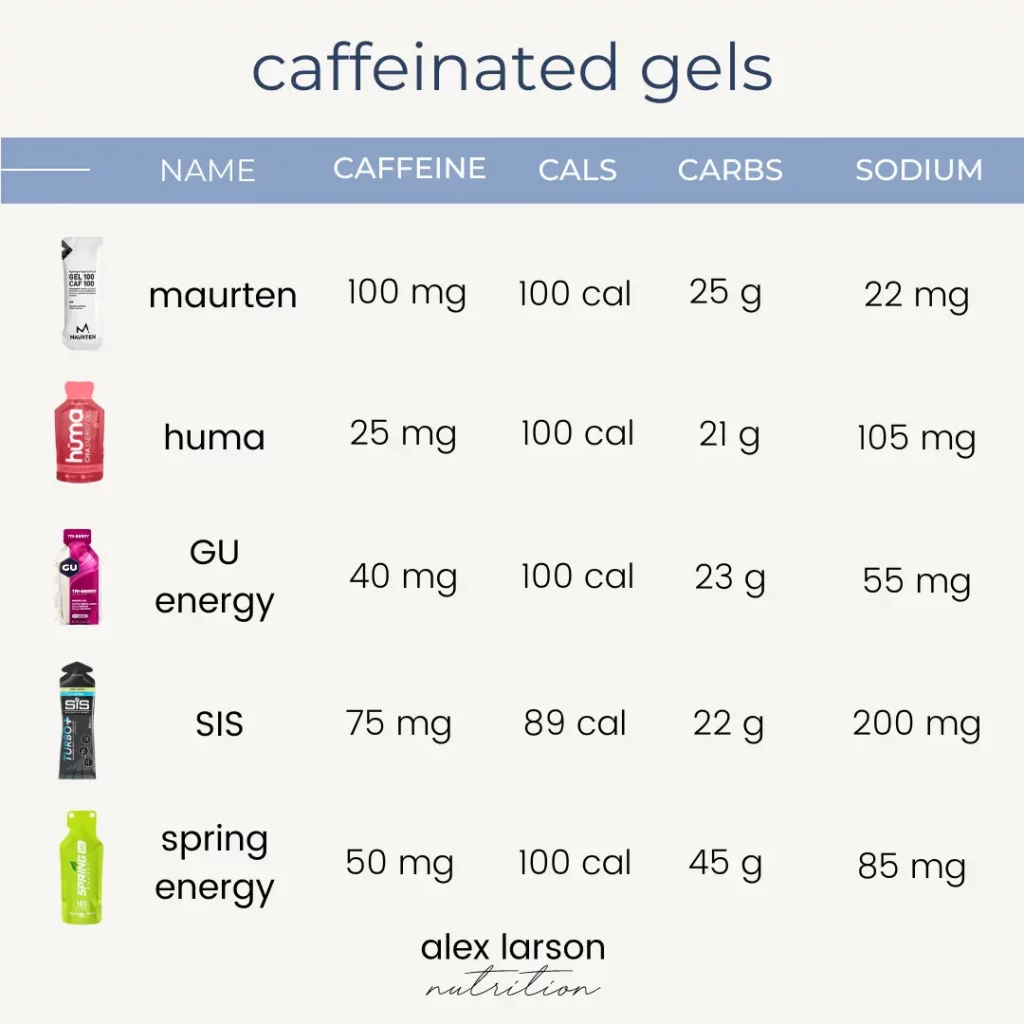RUNNING →
Level Up Your Nutrition Game With Our Freebies
Alex
I provide nutrition coaching for endurance athletes to improve performance and body composition through a simple and flexible eating style.
Hi, I'm
ATHLETE EATING GUIDE →
PROTEIN →
TRIATHLON →
RECIPES →
PERFORMANCE NUTRITION →
SUPPLEMENTS →
HOLIDAY & TRAVEL →
PLANT-BASED →
FEMALE ATHLETE NUTRITION
Explore the Blog
LEARN MORE →
ATHLETE GROCERY SHOPPING GUIDE →
RACE DAY: TRIATHLON NUTRITION PLANNER →
READY TO FUEL?
incredible value!
The fueling guide bundle serves as your one-stop-shop for strategies to fueling before, during and after your workouts.
ENDURANCE EATS
BINGE-WATCH READY!
YOUTUBE SERIES
Even for the best-intentioned and most-practiced athletes, nutrition can make or break your race. I have worked with countless athletes that have come up short of their “A”, “B”, and “C” race day goals, mostly in part to a poor race-day fuel and nutrition plan.
This is exactly why I distinctly remember working with a competitive runner who completely avoided all forms of sports nutrition products while running and racing in fear that it was going to ruin her race day.
It does not need to be this way and certainly working with a sports dietitian can help remedy this. There is no one-size-fits-all when it comes to running and race day nutrition. But, fortunately there are products that can make fueling a heck of a lot easier. If you simply need a refresher when it comes to race day fuel and nutrition, be sure to bookmark this guide and share it with your best running buddies.

Race Day Fuel: Benefits of using sports nutrition products
Interestingly, research has shown that endurance sports, including running, can actually decrease appetite. This, in addition to factors such as race day nerves and jitters, heat, altitude and various environmental factors can make race day fueling a major challenge. Though certainly not impossible!
As with most skills, good and repeated practice sets you up for a very solid race day. Practicing your race day nutrition game plan prior to race day is imperative to ensure that your body tolerates it. Ideally you practice your race day nutrition plan on most, if not every, long run and harder effort run throughout your training cycle. Also use off-season as the perfect opportunity to refresh your nutrition plan and experiment with new products to fuel those miles.
There are countless nutrition products available on the market that make fueling for runs and races a lot easier. Sports nutrition products are often portable and take up very little space and also offer quick, easily digested nutrition. This will fuel your miles and prevent fatigue and “bonking” during intense or prolonged periods of running.
Advantages of energy gels
Energy gels are extremely portable and provide easy-to-digest concentrated nutrition that make hitting your carb and sodium goals a lot easier. Energy gels are often made up of simple sugars which break down quickly in your bloodstream to give you more energy while running and racing.
Most standard energy gels are approximately 1oz and fit well in shorts with pockets, a sports bra with pockets or slits, a running belt, or even in a hydration vest with pockets. If you are traveling to a destination race, energy gels are small enough to squeeze through security. Energy powders are equally as convenient as you simply mix the powder with water. This can be easily stored in a handheld water bottle or in a hydration vest.
What to look for in race day fuel
Peruse the sports nutrition section at any local running store and it can be daunting to know where to start. The prettiest package does not always offer the best nutrition, in fact it is most often the opposite. For most runners, the recommendation is to aim for 60-90g of carbohydrates per hour, 200-500mg of sodium per hour and 5-10oz of fluids every 15 minutes during training and any running race that is over one hour in length. Whew! That is a lot to remember and it may require working with a sports dietitian to ensure you are hitting these marks for a well-fueled race.
Products available
Simple carbohydrates such as energy gels, energy chews, sports drinks, and other chewable snacks are the most convenient options for hitting these nutrition goals. Common energy gels, chews, drinks, and snacks available are:
Energy gels:
- GU
- PowerBar
- Honey Stinger
- SIS
- Hammer Nutrition
- Huma
- Maurten
- UCAN
- Spring Energy (Awesomesauce flavor is an Alex Larson Nutrition team fave)
- Untapped pure maple syrup
- Muir Energy
Chewable energy chews/gummies:
- PowerBar powergel shots
- Jelly Belly sports beans
- Honey Stinger energy chews
- Skratch energy chews
- ProBar bolt chews
- Gatorade Endurance energy chews
- Bonk Breaker energy chews
Energy drinks:
- Hammer Nutrition heed, Hammer Nutrition perpetuem
- UCAN
- Tailwind endurance fuel
- Skratch
- Nuun Endurance
- Gatorade Endurance
- GU Roctane
- Clif Shot hydration
Other chewable energy snacks:
- ·Honey Stinger waffle
- ·Rip Van Wafel
- GU strropwafel
- Hammer Nutrition hammer bar
- Maurten solid C
- Skratch energy bars, crispy rice cakes
- Bonk Breaker energy bar
- Clif bar
- SIS baked energy bar
- Spring energy bar
This is not an exhaustive list as there are many other sports nutrition options available. Also, serving sizes, carbohydrate, and sodium amount per serving of these products varies largely. As an example, some energy gels contain 25g of carbs/serving and are high in sodium while other brands are closer to 45g of carbs/serving and are low in sodium.

Avoid these mistakes
The golden rule of race day fuel and nutrition. Always thoroughly test and trial your race day nutrition plan throughout training so you have a plan that you know works for you. This will give you more confidence on race day and be one less thing to worry about!
Repeat after me: I will never try anything new during a race that I have not tried during training.
A classic rookie mistake that will derail your race goal is trying new foods and new products heading into race day. There is a good chance that your body may not tolerate these products and it’s important that you train your body and gut to tolerate these sports nutrition products. Ideally, you want to experiment with your race day nutrition plan on most, if not all, of your long runs and harder efforts during your training cycle.
Some sports nutrition products may contain ingredients such as artificial sweeteners, sugar alcohols, and added fiber. These ingredients may contribute to unwanted gastrointestinal (GI) issues such as gassiness, bloating, and diarrhea. Other nutrition products may contain a higher amount of fructose which also may contribute to unwanted GI symptoms. You may want to avoid products that contain sucralose, aspartame, xylitol, and higher fructose products if you are more prone to these issues.
Try and try again. I recommend honing in on multiple fuel options and incorporate these products regularly into training. Because the nutrition varies largely depending on the product, most of my athletes utilize several different products, including energy gels and sports drinks, while training.
Race Day Fuel: Pros and cons to caffeine
Caffeinated food sources, including caffeinated energy gels and sports drinks, are known to provide a quick boost in energy prior to running and racing. The effects of caffeine vary largely depending on the individual.
If you’re used to consuming caffeinated sports products, it may be a good option to get you energized early before a race or harder effort workout.
For some individuals, caffeine can also offer benefits while running and racing at harder efforts. Research shows caffeine can increase alertness and increase time to exhaustion. Though this is more pronounced in non-caffeine users than in regular consumers. Some runners find that caffeine can help produce a reliable bowel movement prior to the race though this is something that you must experiment with prior to race day to avoid any unwanted surprises.
For other individuals, too much caffeine can increase race day anxiety, increase nerves and jitters, and also result in abdominal cramping, gassiness, and diarrhea. If you are more sensitive to the effects of caffeine, tread cautiously with caffeinated sports nutrition products.

Race Day Fuel: Plain water vs sports drink
While plain water is cheap, portable and hydrating, you’re going to get more benefit with a sports drink beverage. Especially, in warmer weather and humid conditions where sweating is increased. Unfortunately, while plain water may quench your thirst, it doesn’t contain carbohydrates or sodium.
For most athletes, I do encourage utilizing a sport drink in training and race day to better help meet your fluid, carbohydrate and sodium needs.
Choose your own adventure
Each individual has very unique nutrition needs and it is important that you feel just as confident in your fueling plan as you do with your training and racing plan.
Nailing down your race day fuel and nutrition plan requires consistent practice and patience. Consider working with a sports dietitian so that you can better tailor your race day fuel plan to what works well for you.
Alex
I provide nutrition coaching for endurance athletes to improve performance and body composition through a simple and flexible eating style.
Hi, I'm
LEARN MORE →
take the quiz!
Let's discover your Endurance Nutrition IQ
How well do you know your fueling? Answer these questions and let's see where your endurance nutrition knowledge is at!
Take the quiz
level up your nutrition game with these freebies
free downloadS
Protein-Packed 10-Day Sample Meal Plan
Athlete Eating Guide
Athlete Grocery Shopping Guide
1
2
3
Inspiration to fit 120 grams of protein into your day
Planning what goes on your plate
Putting the right foods in your grocery cart